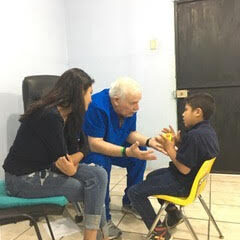The purpose of a special needs trust is to help a person living with a disability live a good quality of life while preserving personal assets. Who determines what a person’s quality of life is? When does someone know that a good quality of life is reached? How can a special needs trust benefit a person living with a disability?
To appreciate the benefits of a special needs trust, the definition must be understood. When someone, of any age including an infant, is living with a disability (mental illness, physical condition or illness, or an intellectual disability), the person may qualify to establish a special needs trust. This trust holds assets that belong to the person living with a disability, thus allowing this person to qualify or maintain government benefits to cover healthcare needs as well as assist with individual, day-to-day necessities.
Depending on a person’s age and personal needs, the feeling of living a good quality of life may differ. There are many possibilities for how trust money may be used but there are also guidelines that must be followed so as not to lose needed government benefits. For example, a senior citizen who is living with a disability may make a request for trust money to be used to pay for cataract surgery so the grandchildren can be “actually” seen. If this procedure is not covered under insurance or government benefits, the trust may consider and pay this expense. Many seniors enjoy taking a trip without allowing their disability to deter them. Physical disability can change how a senior travels but not stop the adventure. A request can be made, to use trust money, to pay for a trip such as with a group, through a vacation tour company. Mental disability may cause fear and apprehension in living life to its fullest. However, a special needs trust may be used to pay for various therapies, massages, alternative medications, and counseling. Through these measures, the senior can find contentment and relief from anxiety.
For a young to middle-aged adult, trust funds may be used for items or services that government benefits do not cover. For example, a person may submit a request to purchase a bicycle to be used for daily rides around a park or on country roads. Classes can be an exhilarating challenge. A person may make a request to take a variety of classes or pay for a college education. These classes can provide the start of a new hobby, be educational, or simply taken just for fun. Trust funds can be used to pay for items that relate to the seasons. As spring approaches, a person may request trust funds to pay for garden supplies, a porch swing, or patio furniture to set outside and enjoy the beautiful days.
Children see many things they want, but a trustee knows that not all things desired are actually a good use of trust money. The trustee has a fiduciary responsibility to manage each person’s trust funds and to follow all federal and state guidelines. With the help of a parent or guardian, trust money may be used for, but not limited to, purchases such as computers, games, educational tools, summer camps, gym memberships, clothing, toys, vacations, and nonmedical care.
No matter what age a person is or what disability a person is living with, it is important to know that individual special needs trust funds are available to provide a good quality of life. Give the person living with a disability the opportunity to share with you what is needed or desired and what will provide the individual a good quality of life.
*For more information, please contact the Vista Points Special Needs Trusts office at 888-422-4076.













